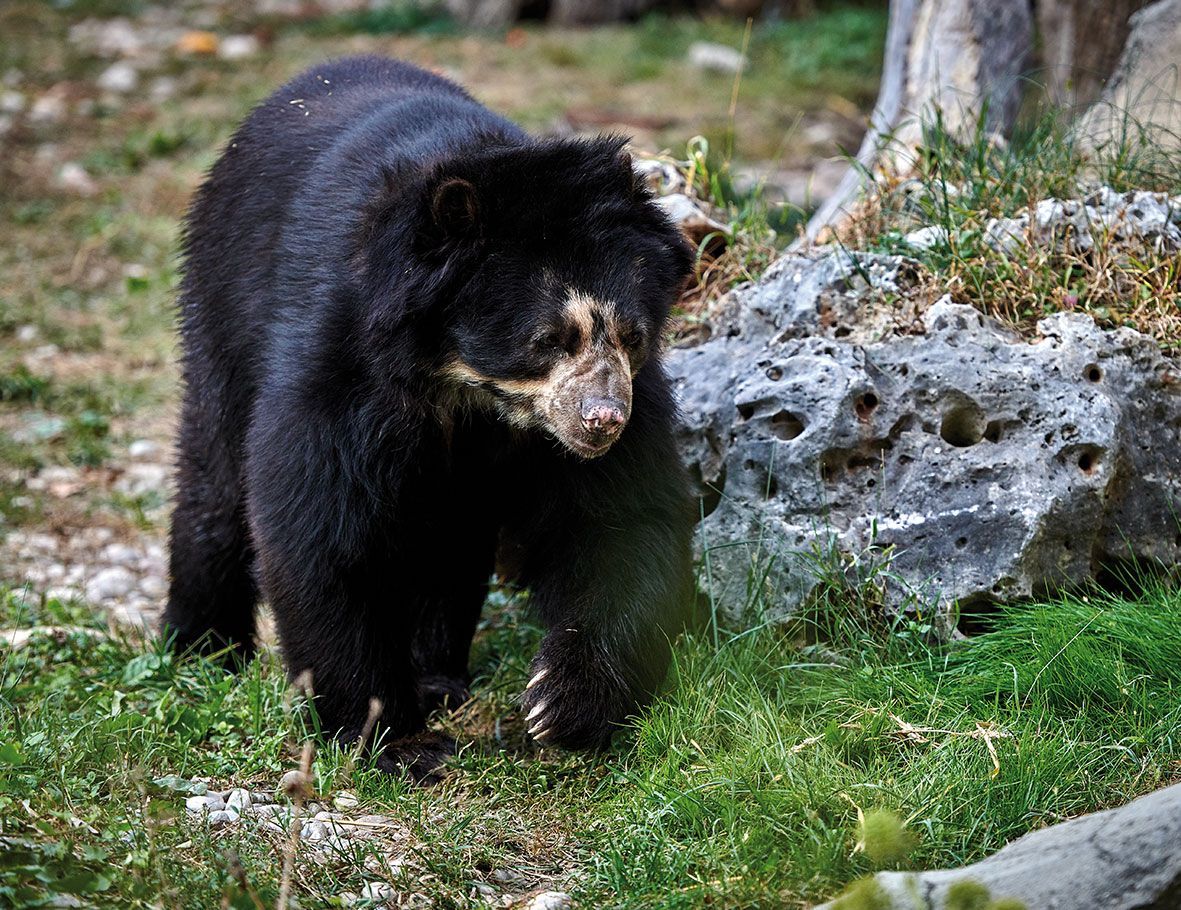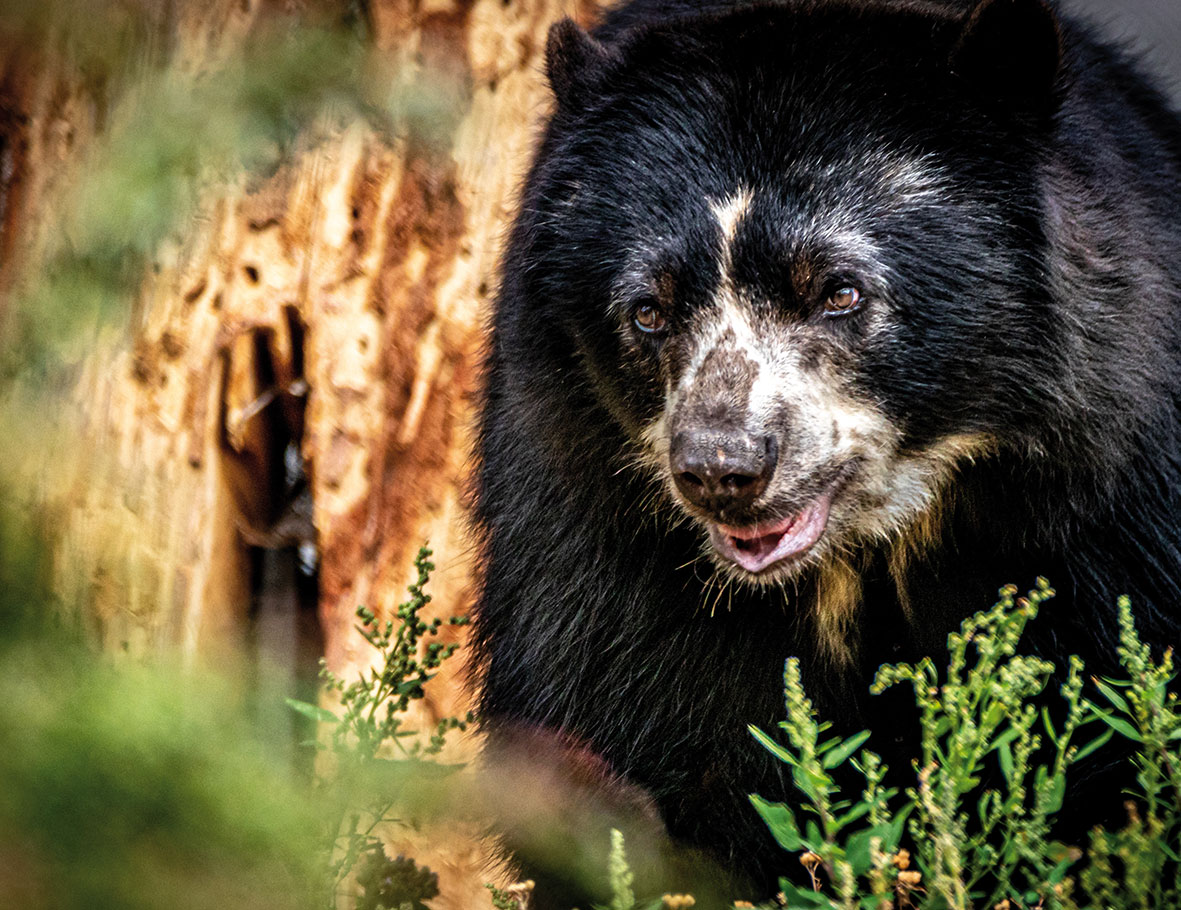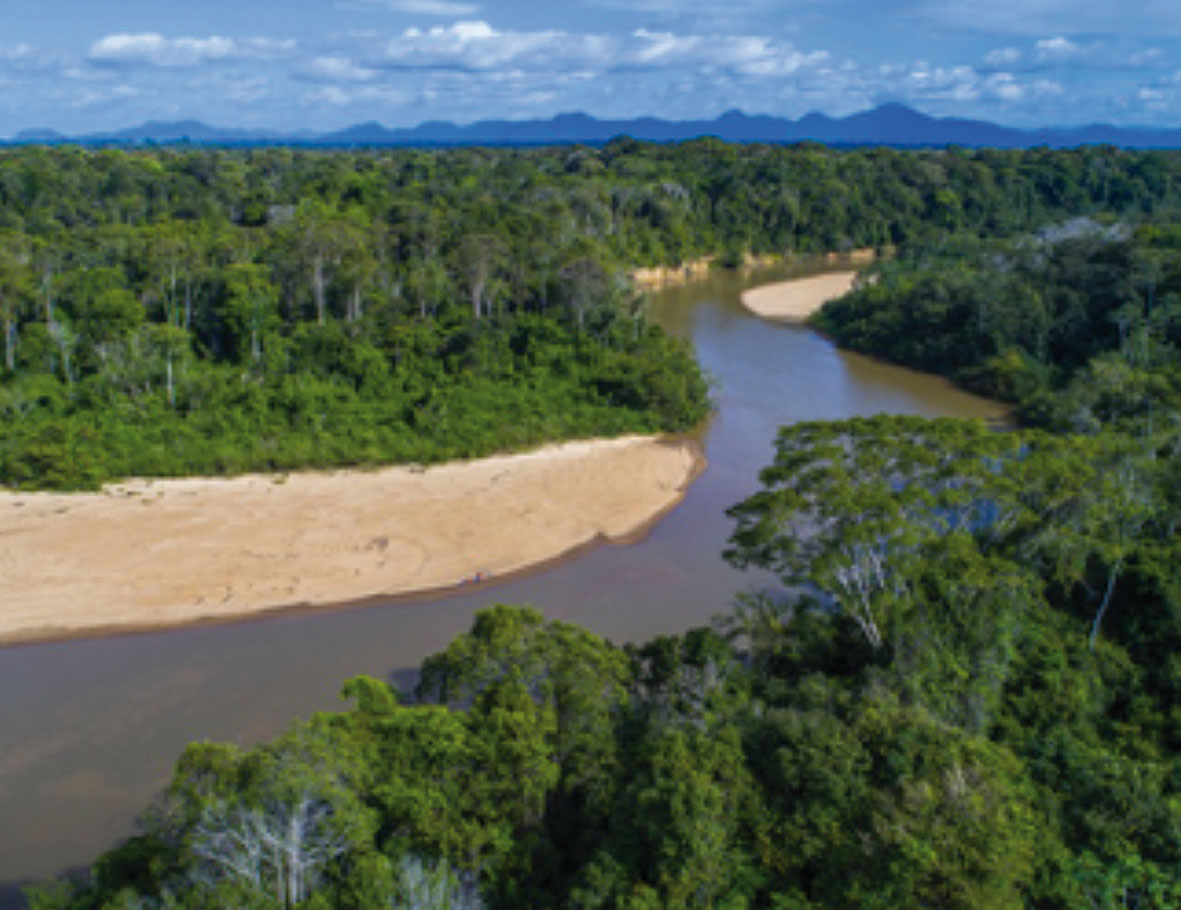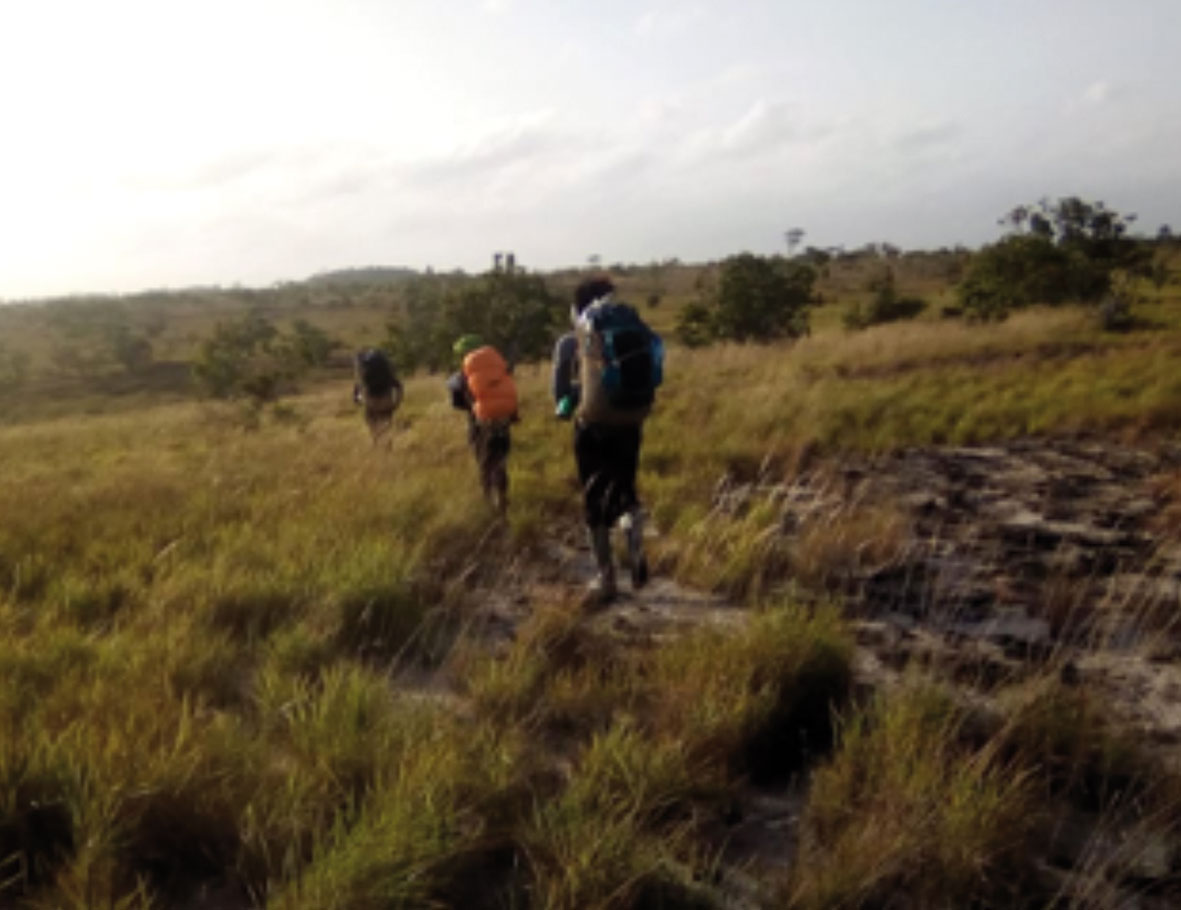Peru | Guayana
Andean Bears & Co.
Together we are strong – this could describe the cooperation between the Frankfurt Zoological Society and the Academy. The focus is on the protection of rhinoceroses in Africa and the Andean or spectacled bear
in South America – and the enormous challenges for both organizations.
In southeastern Peru, where the Andes meet up with the Amazon Basin, an unparalleled diversity of species exists. This region is probably one of the last places on earth in which indigenous people can live without contact to civilization.
The Peruvian government has established enormous protected areas there over the last decades – such as the Manu Biosphere Reserve, one of the remaining refuges for the endangered Andean bear (Tremarctos ornatus).
The Academy began supporting the Frankfurt Zoological Society (FZS) in Peru in 2018 in its species protection efforts and at the same time, to consider the wellbeing of the local people. All the conflicts between humans and bears are currently being moni-tored in a pilot project. The results are presented to the public and used in environmental education in schools. The ongoing aim is to sensitize the population both to the protection of species diversity as well as to the massively endangered Andean bears.
Within the framework of the project, workshops are simultaneously being offered to local artisan organizations with the intention of strengthening them, expanding their offerings and to facilitate access to sources of income. This work, however, is hindered by the many forest fires which are mainly caused by the burning of fields. The local farmers are convinced that this ‘technique’ improves the harvest. Although attempts are made to control the burning, the flames occasionally spread to the forests.
Therefore, one goal of the ProBosque Manu Project, which is also sponsored by the International Climate Protection Initiative (IKI) of the German Federal Ministry for the Environment, Nature Conservation and Nuclear Safety (BMU), is to bolster and further consolidate the fire departments. Park rangers, who also belong to these fire departments, can passionately and reasonably convince locals how essential it is for the good of nature, species protection and personal safety, to stop burning vegetation.
The Academy also endorses the plans of the FZS in Guayana and the local government to establish a 6,000 square kilometer protection reserve in the fully forested and uninhabited Kanuki Mountains in the heart of the Rupuni savannah. At the moment, camera traps are gathering basic information about large mammals. In addition, managers and rangers, who regularly oversee the area through patrols by boat and on foot, are being trained to collect and analyze data on site, for example, in order to prevent illegal deforestation.
Complete FZS project reports are available for download ZGF-Report 2019




